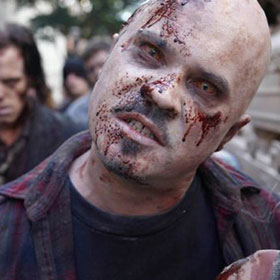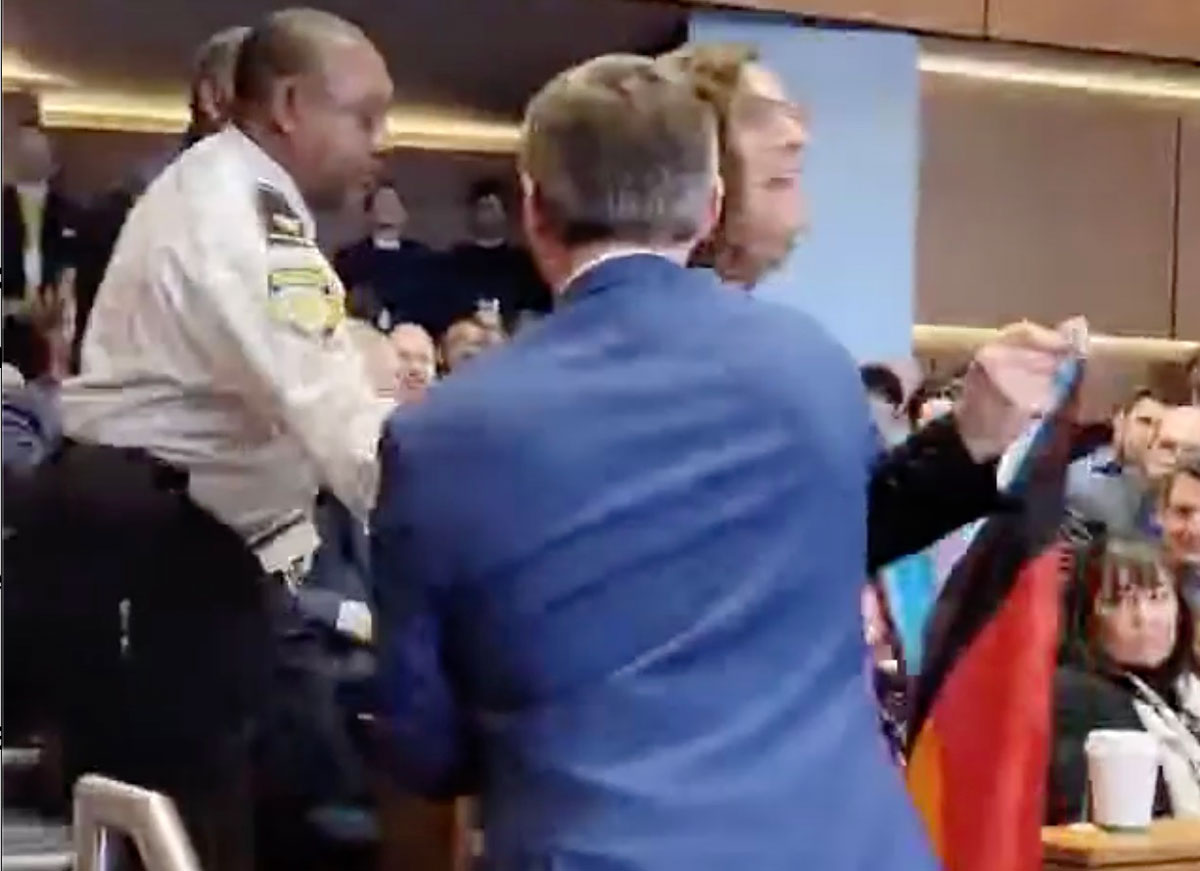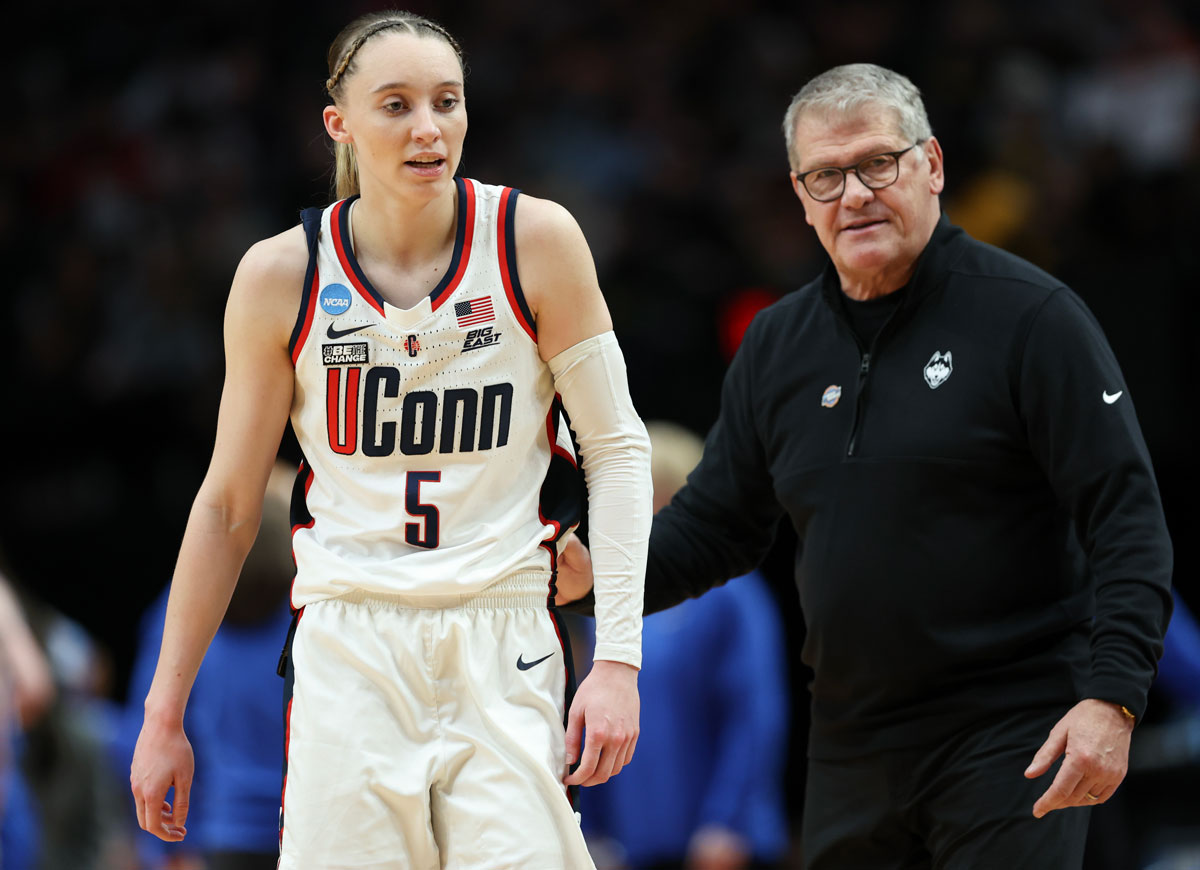The Walking Dead

3/5
The Walking Dead—AMC’s latest attempt to catapult another of its shows to the critical and popular heights of Mad Men and Breaking Bad—tells the story of Rick Grimes (Andrew Lincoln): a small town sherriff who, in the aftermath of a zombie apocalypse, must lead a small motley group of survivors across the country to salvation, contending with both the external threats of death and infective zombie-bites, and the more internal troubles of dissent among his group and betrayal among his friends.
During a brief scene towards the end of the series premiere of The Walking Dead a character refers to the creatures by which he and his party are being pursued as “zombies.” Though viewers uninitiated to zombie films might deem it only logical that the appellation should be used in one, those familiar with the genre will be aware that, in such films, the walking undead are rarely if ever referred to as “zombies.” For good reason: in order to make sense of as ludicrous a premise as a zombie apocalypse, the viewer must suspend his or her disbelief of what is transpiring on the screen, and this suspension can only be ensured by the filmmakers by setting their story in a world in which zombie movies do not exist because, in such a world, zombies would be “real” and not merely the stuff of art and legend.
Since the word “zombie” has only entered the popular imagination as a result of its use in books and films, it would not be spoken by characters in a world where the genre did not exist, for the same reason that characters in a modern day Wolfman adaptation would not immediately refer to their antagonist as “a Wolfman.” I draw your attention to this minor slip-up because I feel that it neatly encapsulates the overall deficiency of The Walking Dead: it is neither a respectable entry into the genre nor a subversive reworking of its formulae. It is a zombie television series whose creators seem to know enough about the genre to invoke its broadest, blandest clichés, but too little to apply them with any efficacy.
The appearance of such a series at a point in the history of the genre when it has already been perfected—or at least exhausted—begs two questions: why now and why in this format? Those searching the 90-minute program for evidence that the show’s creators deemed an epic series the most practical format in which to tell their story will search in vain because The Walking Dead is quite obviously an attempt to translate the success of the zombie film genre to another medium, even at the risk of distending a 30-minute “first act” into a 90-minute series premiere. Of course, since it would have been impossible to achieve such a diffusion of plot by merely stretching out to the point of redundancy its expository scenes or devoting lengthy passages to gratuitous and grisly gore—lord knows they’ve tried—the show’s creators have attempted to infuse the overly familiar premise with elements of the domestic drama and white trash soap opera. This would seem like innovation if it weren’t for the fact that these disparate genre elements exist interdependently of each other and seem to be little more than an excuse to introduce incendiary plot convolutions for the sake of effecting inorganic, forced dramatic tensions—as though the appearance of the walking cannibal undead and a worldwide extinction event weren’t enough to distract our characters from the trivial squabbles of their domestic lives.
The Walking Dead may one day prove historically significant as not only one of the goriest television shows in history, but also one of the first entries into the zombie genre to take most of its aesthetic cues directly from video games. Like a video game, it is far lighter on story than it is on action, and its action largely consists of identical close-up shots of zombies having their heads blown off. This scare tactic is utilized so frequently that the diminishing returns principle seems to kick in at about the halfway mark, an inauspicious start to an intended episodic series, portending the worst possible consequence of an abundantly gory and violent presentation with little else going for it: desensitization. Not only are The Walking Dead’s demons “never scary in the light,” they’re never scary in close-up and they cease to be scary at all after 45 minutes.
As for the particulars of this zombie story, the fact that I haven’t mentioned any should suggest either that they aren’t particularly interesting or that you’ve heard them all before. There’s the vigilant father and son who begrudgingly pool their survival resources with those of the last surviving vestige of law and order in a chaotic world: the police officer; the hardened zombie-hunters who must kill one of their own who has crossed over to the other side—played to extreme bathetic effect; the ragtag band of survivors now undergoing internal strife in their provisional society; and of course, gore, gore and more gore.
RELATED ARTICLES
Get the most-revealing celebrity conversations with the uInterview podcast!







Leave a comment